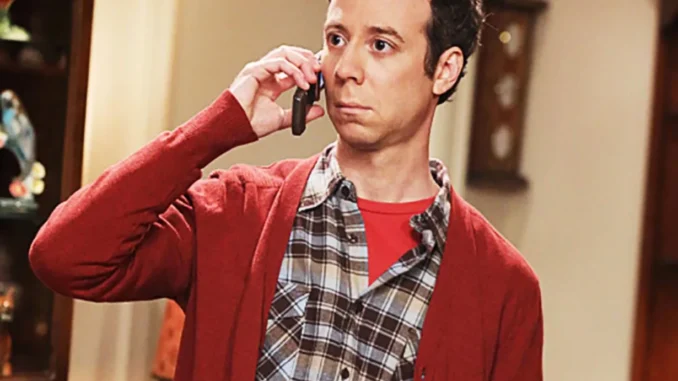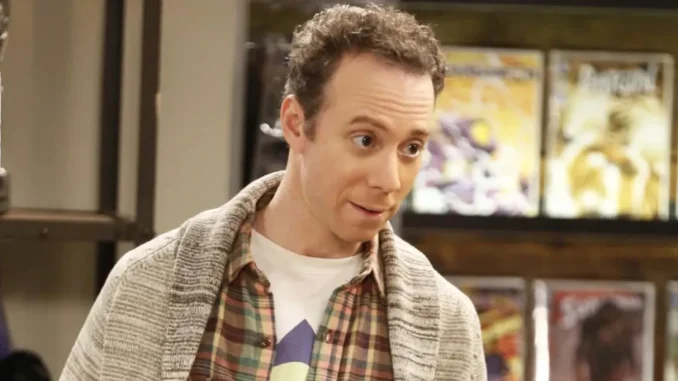
A Wallflower in a World of Eccentrics
In a sitcom filled with genius minds, big egos, and loud personalities, Stuart Bloom stands apart as The Big Bang Theory’s most understated—and perhaps most emotionally resonant—character. Played with understated charm by Kevin Sussman, Stuart is first introduced as the mild-mannered owner of the local comic book store, a haven for Sheldon, Leonard, Howard, and Raj. But what began as a one-note side character gradually transformed into one of the show’s most poignant figures.
Stuart isn’t a genius. He doesn’t have a PhD. He doesn’t date much. His store is perpetually on the brink of bankruptcy. In the glitzy sitcom landscape, Stuart is… painfully ordinary.
And that’s what makes him extraordinary.
Loneliness in a Laugh Track
Stuart’s greatest storyline isn’t a romantic arc or a major career breakthrough—it’s his ongoing battle with loneliness and self-worth. Where the core characters have each other, careers, and relationships, Stuart is often seen struggling to pay rent or even keep the lights on in his shop.
One of his most heartbreaking—and darkly funny—moments comes in Season 7 when he says:
“It’s a comic book store by day and… a comic book store by night.”
The audience laughs. But under that laugh is something deeper: a portrait of a man stuck in place while everyone around him is moving forward. His sense of inadequacy becomes painfully apparent when he’s hired as a babysitter for Howard and Bernadette’s kids—not because he’s good with children, but because he’s always available.
“I’m not just free tonight. I’m free every night.”
That line, wrapped in a joke, reveals more about Stuart than many dramatic monologues in other shows ever could.
Stuart as the Mirror

Stuart functions as a mirror to the main group. While the gang obsesses over theoretical physics, Star Wars debates, and complicated relationships, Stuart reminds us what reality can look like outside the intellectual elite. He lives in the same world but plays by different rules.
Unlike Sheldon or Leonard, Stuart doesn’t have the social capital to act selfishly. His kindness isn’t performative—it’s necessary. He can’t afford to push people away, so he leans into empathy and humility.
This contrast is beautifully highlighted when he competes (very awkwardly) with Raj for the affection of a lonely woman. While Raj uses charm and confidence, Stuart simply says:
“I don’t have much to offer, but I’d treat you well.”
It’s not flashy. But it’s real.
Unexpected Growth, Quiet Victory
In the final seasons, Stuart experiences modest but meaningful victories. His comic book store reopens. He hires a quirky assistant. And he finally starts dating Denise, a confident and sarcastic woman who genuinely likes him for who he is.
What’s beautiful is that The Big Bang Theory never transforms Stuart into someone he’s not. He doesn’t suddenly become rich, successful, or suave. Instead, he gains stability, friendship, and respect. He moves in with Howard and Bernadette—not as a freeloader, but as a trusted part of their family. The scene where Howard says:
“You’re good with the kids. They love you.”
It hits hard because it shows Stuart finally being seen not just as a friend, but as someone important.
The Fan Perspective: Why We Love Stuart
Ask longtime fans of The Big Bang Theory and many will admit: Stuart is one of the most relatable characters on the show. He doesn’t have a perfect life, but he never gives up. He’s awkward but kind, unsuccessful but sincere. He’s the underdog we root for—not because the show tells us to, but because we see ourselves in him.
Online forums are filled with fan posts like:
“I stayed with TBBT until the end because of Stuart.”
“If they made a spin-off with Stuart and Denise running the comic store, I’d watch it in a heartbeat.”
In a world full of superheroes, Stuart is the sidekick who quietly saves the day. Not with powers—but with persistence, empathy, and just enough hope to keep going.
Final Thoughts
Stuart Bloom may not have had a spotlight in every episode. He didn’t get the big kiss, the flashy wedding, or the grand Nobel Prize speech. But he had something arguably more powerful: a quiet, resilient humanity that grounded the show in something real.
In a sitcom about brains, Stuart reminded us of the heart.